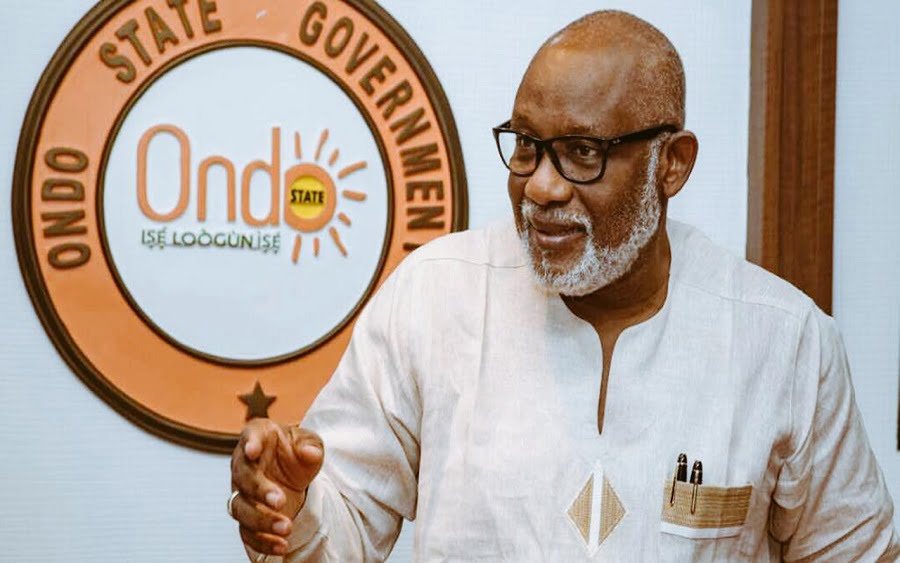Imo State Governor, Senator Hope Uzodimma, has recalled the days of Alhaji Umaru Shinkafi as helmsman of the defunct Nigerian Security Organisation (NSO), saying were Shinkafi alive today, he would have adopted the grassroots approach to tackling the current insecurity ravaging the country.
Governor Uzodimma spoke Tuesday while delivering a lecture at the Second Annual Shinkafi Intelligence and Security Summit organized by the Umaru Shinkafi Legacy Foundation in Abuja.
Speaking via zoom on the topic, ‘The Socio-Economic Implications of Kidnapping and Banditry in Nigeria,’ the Imo State Governor who said insecurity in the country has a background however said grassroots approach will go a long way in to solving the challenges posed by insecurity in Nigeria.
Said Governor Uzodimma: “As scary as these grim socio-economic developments may appear, the fact remains nonetheless that this is a hydra headed monster brought about by many factors such as poverty, illiteracy and political manipulations, among others. The political angle to this explains why some of our leaders are fixated with fault finding rather than with finding solutions to the problem, which by the way, predates the administration of President Muhammadu Buhari.
“Many times at different fora, I have canvassed the view that we are dissipating more energy in blaming the federal government and Mr. President rather than diligently and honestly seeking solution to criminality including banditry and kidnapping. Before 2015, we had these crimes in whatever names they were called. So the problem is not the creation of President Muhammadu Buhari or the ruling All Progressive Congress (APC). This issue of scapegoat mentally has actually retarded our progress in combating these security challenges.”
Governor Uzodimma said bandits successfully strike mostly in rural and isolated communities because there is hardly the conventional security operatives there to protect them, noting that “given the vast landscape of Nigeria and her huge population, it will take some time to have either the police or the military stationed in every community.”
“But it won’t take much to have every community raise its own vigilance group for its protection. The military and the police should collaborate to train the vigilance groups for the protection of their immediate communities. I do not see how banditry and kidnapping can flourish unchallenged if every community in Nigeria has a functional well trained vigilance group collaborating with conventional security agencies to protect their communities,” he explained.
Drawing a link between the type of insecurity in the Northwest where Sinkafi hailed from and Southeast where the governor comes from, Governor Uzodimma regretted that the two zones have paid dearly as a result of recent cases of banditry, kidnapping, cattle rustling with their colossal economic and social consequences.
Hear Governor Uzodimma: “Truth to tell, kidnapping and banditry have become a major national scar, threatening the very foundations of our nation. In addition to the innumerable fatalities resulting from the operations of bandits and kidnappers, these deadly crimes constitute one of the greatest threats to the Socio-economic fabric of the country.
“All available statistics point to the fact that kidnapping and banditry endanger social cohesion, discourage investment flow as well as inter-communal and inter-state trade. The overall impact is that it triggers economic downturn and impairs progress in formal and informal employment.
“To drive my point home, I crave your indulgence to use the situations in the Northwest ( Shinkafi’s geopolitical zone) and the Southeast, for illustration. I believe that the case of incessant banditry in the country in general and the Northwest and South East in particular, are well known to many.
“Armed bandits routinely attack communities in the Northwest zone to murder, kidnap and rob them. They also rape women, rustle cattle and attack farmers. This is rampant in Zamfara, Katsina, Kebbi, Kaduna and Sokoto States. Because these attacks are frequent and not far between, the socio-economic life of these communities has been subjected to unimaginable decapitation. Major markets in the region such as Dandume, llella, Maidsbino, Shinkafi and Bardoki, have been shut down at one time or the other.
“These attacks also led to the displacement of thousands of people. Available statistics indicate that no fewer than 50,000 people have been displaced in the region, in the last three years alone. Equally no fewer than 7,000 people were killed within the same period.
“Food insecurity is one major fallout from these attacks. Farmers, in their great numbers, are among those murdered or displaced while some were chased out of their farmlands. The bandits often burn grain Silos as part of their dare devil criminal branding.
“Naturally, this has led to major food insecurity in the land. Equally, inter communal trade and even inter-state trade has been adversely affected. Investment inflow is yet another casualty. No profit driven investor will want to put his money in an unsafe environment.
“Noteworthy is also the recent mindless banditry in the South east; which saw to the burning of public and private property, kidnapping, raping and killing of innocent people. It is estimated that many people were brutally murdered in these attacks. The actual figures are still trickling in, but it is estimated that no less than 2,000 people lost their lives in the Southeast from these attacks, while hundreds of public and private property were burnt.”
Governor Uzodimma continued: “The trickle down impact in my state Imo, known as the hospitality capital of the country, is massive loss of revenue and dislocation of the socio-economic life of the people. The hospitality industry in the state lost billions of Naira in revenue, as most customers deserted them, not sure of their safety. This affected a chain of other businesses linked to the hospitality industry.
“The hijacking of agricultural produce coming from the North to the Southeast stands out as a clear illustration of how banditry can damage the economy. Onion producers and marketers alone lost over N5b worth of goods between last year and this year to bandits. Cattle marketers also have a similar tale of woes to tell. It will be stating the obvious to say that the activities of bandits have gravely affected a hitherto booming inter regional trade between the North and the East, leading to food insecurity and socio-economic crisis.
“The above sordid narratives from the two regions under review, provide vivid insights into what the picture looks like at a macro national level. In this respect, it will suffice to point out that the national statistics on kidnapping alone is heart rending. Just this morning, The Blueprint reported that 2,371 people were kidnapped in the country between January and June 2021 alone. This includes boys and girls in school. The report added that a whopping sum of N10b was demanded as ransom by the kidnappers within the six months under review. And this is for just a six month period. You will agree with me that if we should go down to a three or four year statistical review, the picture will be mind blowing. So too will the socio-economic implications for the country.”
The governor suggested the need for Nigerians to love one another, establish and deal with the factors causing fertile grounds for insecurity across the country and be more obligated to the needs and demands of the youth in government policy formulations.
His words: “Arising from that, we need to pay particular attention to circumstances that give rise to crimes and criminality. What readily comes to mind is unemployment and the attendant poverty. Drought of patriotic zeal among some of our leaders and the concomitant lack of commitment to national unity is yet a major factor.
“Taken this further, it can be adduced, without any fear of contradiction, that the absence of patriotic zeal among the political elite, which is a major threat to national unity, and the failure of some political gladiators to walk the talk of love for one another are at the centre of the root cause of criminality in the land. I say so because it is the absence of love for one another that breeds injustice, clannishness or ethnic irredentism, which translates to mindless criminality.
“However, while some of our leaders have been blamed roundly for creating the environment that has led to this debilitating disease of crimes by not running a responsive government, we cannot run away from the fact that no matter what you do, some people would still choose to travel through the highway of crimes. Yet we must admit that political manipulation of the vulnerable poor and largely uniformed masses is a ready fuel for crimes.
“So in my opinion, we should first examine areas that provide fertile ground for breeding of bandits and kidnappers before we can successfully fight them. Paradoxically, when we talk of the socio-economic implications of kidnapping and banditry, we are returning to why they thrive in the first place. Even those with elementary knowledge of economics and psychology know that we now have a dysfunctional society occasioned by fear while the national economy and even those of the states are bleeding. Direct Foreign Investment has tumbled in the last few months because people are not sure of the safety of their investments. When there are no investments, and the economy worsens, there would be no jobs for our youth. That may translate to rise in criminality.”
Governor Uzodimma did not absolve government from the causes of insecurity, even though he believes government was already doing a lot in that direction to protect the lives and property of the citizenry.
He said: “However, Government at all levels has a huge role to play to ameliorate the economic situation that leads to kidnapping and banditry. I am happy that the President is leading in this respect. Anyone who went through Mr. President’s address during the June 12 Democracy Day celebration would have seen the quantum progress made by the federal government to reduce poverty and crime. Even the N- Power programme is part of an elaborate effort by President Muhammadu Buhari to keep our youth meaningfully engaged and dissuade them from embracing the life of crimes.
“In Imo State, we are following the footsteps of the President and APC-led federal government by empowering our youth with relevant skills and funding the take off of their businesses. Between 2020 and now, we have spent N8b, directly and through collaboration with the Central Bank of Nigeria (CBN) on youth empowerment. Our goal is to ensure that Imo youths have a viable alternative to crime. And this includes those who for one reason or the other, did not further their education. We are also investing heavily on the education of our children to ensure that they are equipped to handle their economic future. In addition, we are partnering with our religious institutions to re-orientate the values of our children to keep them from embracing crime.
“In doing all these, it is the belief of my administration that we should first of all discharge our obligations to our youth so as to make the life of crimes less attractive to them.”
Governor Uzodimma was confident Shinkafi would have travelled the same road he has travelled as regards the way forward in dealing with the cases of insecurity in Nigeria.
He said: “I dare say that given his pedigree and penchant for innovation, he would have thought of a grassroot approach to the challenge. I suspect that late Alhaji Umaru Shinkafi would have brought into this grassroots innovation if he was alive.
“I was no longer a child when Alhaji Umaru Shinkafi was the Federal Commissioner in charge of Internal Affairs between 1975 and 1979. But what struck me most was the humility of this outstanding police officer and lawyer in accepting to serve as Head of the NSO from 1979 to 1983. Those who knew him say his patriotism was unparalleled. That patriotism was also demonstrated in the run up to 1992 general election when he subsumed his own presidential ambition to support Alhaji Bashir Tofa of NRC.”
NEWSTRACK




2 Comments